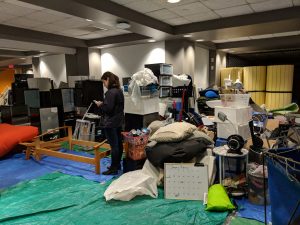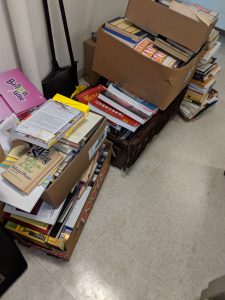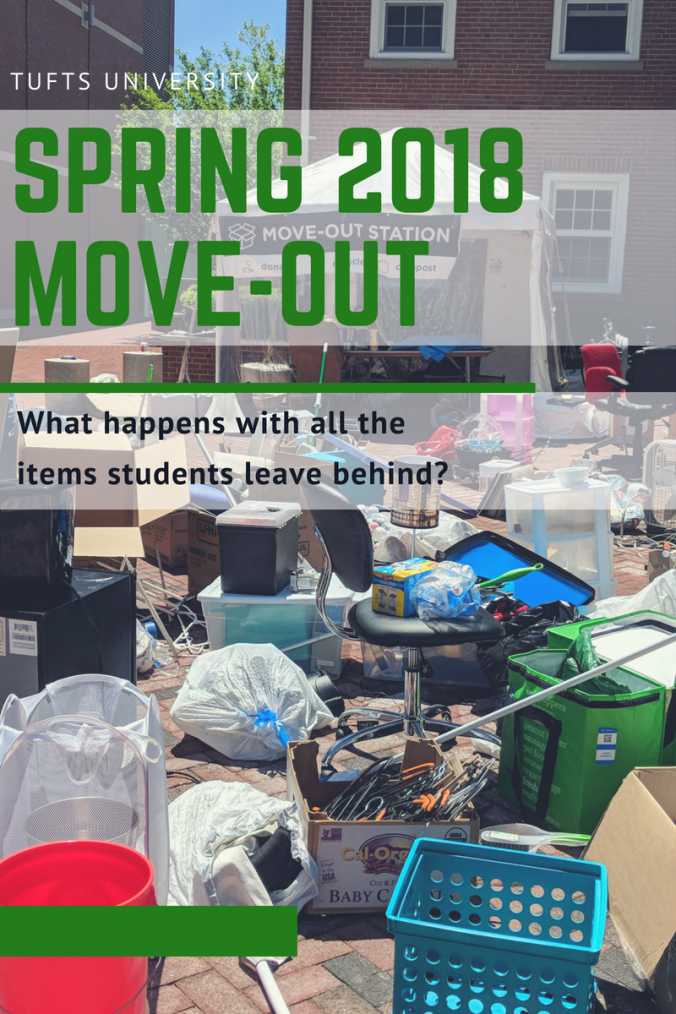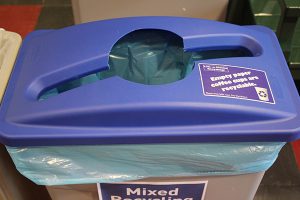Summer has officially begun, all of the students leaving Medford for the summer have moved out, and we can finally stop posting all over our social media about Move-Out 2018!
Thank you so much to everyone who donated their unwanted items. This year, we collected 14,290 pounds of textiles, 719 pounds of food, as well as a significant amount of other donations in the form of e-waste, books, appliances, furniture, and miscellaneous items! That is very significant amount of items that will not be going straight into the landfills, as would have otherwise happened.
Many thanks also to all of the Recycling student workers and staff and the Office of Sustainability staff who helped sort through, organize, carry, and store all of the items. It took us many, many hours to ensure that what can be reused will have the opportunity to find a new home.
So what happens with all the items that are collected?
- Many of the items that are in working and usable condition go to the Back To School Sale hosted by the Green House in the fall. The profits from the sale help them run programs on campus throughout the school year.

- Books go to the Book-it-Forward Lending Library which allows Tufts students on financial aid to borrow textbooks and other books.

- Non-perishable food items are donated to Project Soup, part of the Somerville Homeless Coalition

- Dining hall dishes get taken back to the dining halls!
- Textiles (old clothing, sheets, linens, towels, etc.) go to Bay State Textiles, where 50% of the textiles are recycled for reuse, 30% are turned into wiping cloths, and 20% are recycled into new items.

- Plastic bags are taken to Whole Foods who then deliver them to Trex, an outdoor decking and living products company. Trex converts used plastic film into new, environmentally responsible outdoor products!
Although we are happy to help minimize waste that will go to landfills through our move-out initiative, we also want to remind you that the best way to reduce waste would simply be to purchase fewer items, especially if you are not certain you will use them! You would be surprised by how many unopened packages we found of various miscellaneous items, as well as clothes and shoes that seemed barely worn.
Nonetheless, everything that was donated will be put to good use, and we hope that those who will be returning to school in the fall will stop by the Green House’s Back To School Sale – there will be many great items sold at significantly discounted prices (lots of dorm furniture, some coffee makers, a pair of Hunter boots and some North Face down jackets in good condition, just to name a few)!






Find Us On Social Media!